The Piano Tamers by Jean-Sébastien Gascon
/ May 10, 2004
Version française...
La Scena
Musicale asked some of today's leading pianists to describe their
relationship to the sound and character of their pianos. Their responses resembled comments horse trainers
might make on the topic of purebreds: each piano, they say, has its own
character, and if one can learn to master it, the instrument will produce not
just sound but a higher state of emotion. Sometimes the piano will allow itself
to be mastered easily; other times it will demand a great deal of patience and
study from the musician. And if the player lacks control, the instrument may
decide to reveal nothing but lifeless notes.
Marc-André Hamelin
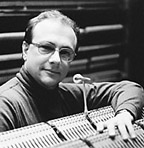 From my point of view, the sound of a piano
is far less important than its character. Even if a piano I'm using in a
performance doesn't have the greatest sound in the world, I can still derive
great enjoyment from the instrument. Remember that Maria Callas had a voice like
a howling wolf but she still managed to conquer the entire opera-loving world.
I've spent a lot of time in my life listening to scratchy old 78-rpm records and
I'm quite used to screening out any distractions from the true character of the
sound. I know a few people who can't bring themselves to enjoy music unless the
sound is pure high-fidelity, and I feel they're completely missing the
point. From my point of view, the sound of a piano
is far less important than its character. Even if a piano I'm using in a
performance doesn't have the greatest sound in the world, I can still derive
great enjoyment from the instrument. Remember that Maria Callas had a voice like
a howling wolf but she still managed to conquer the entire opera-loving world.
I've spent a lot of time in my life listening to scratchy old 78-rpm records and
I'm quite used to screening out any distractions from the true character of the
sound. I know a few people who can't bring themselves to enjoy music unless the
sound is pure high-fidelity, and I feel they're completely missing the
point.
Marc Durand
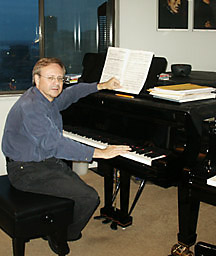 A lot of the time, young players don't really know
how to go about mastering the sound of their instrument. Basically they rely on
the piano to produce the sound, when in fact it should be the opposite--the
piano should be relying on them to know where to go. Without that, the
playing style will lack character, and it becomes hard to tell the difference
between one pianist and another. Everything comes down to how you listen--both
before and after the note is struck--and how you imagine the sound should be. In
a way this is the real test of a pianist's artistic potential. He or she has to
imagine a varied palette of sounds and know the techniques needed to produce the
many different textures that will establish a given mood or direction. It's up
to the player to master the physical inconsistencies of the piano or the concert
hall's acoustics so that the essential artistic vision gets communicated. A lot of the time, young players don't really know
how to go about mastering the sound of their instrument. Basically they rely on
the piano to produce the sound, when in fact it should be the opposite--the
piano should be relying on them to know where to go. Without that, the
playing style will lack character, and it becomes hard to tell the difference
between one pianist and another. Everything comes down to how you listen--both
before and after the note is struck--and how you imagine the sound should be. In
a way this is the real test of a pianist's artistic potential. He or she has to
imagine a varied palette of sounds and know the techniques needed to produce the
many different textures that will establish a given mood or direction. It's up
to the player to master the physical inconsistencies of the piano or the concert
hall's acoustics so that the essential artistic vision gets communicated.
The Fazioli is very sophisticated instrument. The
sound has a kind of purity and transparency. Of course, that will suit some
kinds of repertoire and some styles of playing more than others. Generally
speaking, the Faziolis have a very strong low end, and the different registers
are well balanced. They project their sound very well. The keys tend to react
better to a note's attack than to its weight, however. This can confuse pianists
who aren't familiar with an instrument like that, and they may have a lot of
trouble adapting their technique in a satisfactory way. Bösendorfers are much
the same. They force a pianist to master his sound.
The Yamaha, on the other hand, will meet a player
closer to the middle, so to speak, and compensate for him or her with a more
standard sound. Aside from some high-end Yamahas that I've been able to rent
when performing in Japan, the ones we're used to over here tend to limit what a
player can do creatively. They neutralize the range of tones and colours you can
choose from. But they are still very good instruments--very strong and
dependable. For some players they can afford real advantages.
Jean Saulnier
The Fazioli is quite an extraordinary instrument.
It requires a lot of control from you. Your touch has to be confident and
precise. It gives you a wide range of sounds and great individual clarity. You
hear all the notes. And the sound is very strong; it projects really far. This
works well for playing Beethoven and the classical repertoire. Basically, before
you perform, you have to take the time to master the piano properly.
Oliver Jones
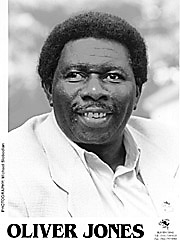 My relationship with my Yamaha is a very close one.
With some pianos, you can feel that they will let you get inside their head, so
to speak. Every piano has its own character, but some resist the player and some
welcome him. But my playing will change according to the sound a piano divulges.
So if I feel that it isn't giving me what I want with certain notes, I'll go
look for others that convey a different message. My relationship with my Yamaha is a very close one.
With some pianos, you can feel that they will let you get inside their head, so
to speak. Every piano has its own character, but some resist the player and some
welcome him. But my playing will change according to the sound a piano divulges.
So if I feel that it isn't giving me what I want with certain notes, I'll go
look for others that convey a different message.
Alain Lefèvre
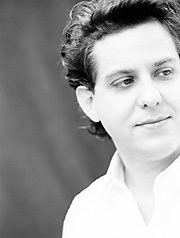 The sound of my piano? That's a difficult question.
There are so many different ways to consider it. Should you look at the
technical details or the mystical side, the mix of emotional possibilities that
let you "inhabit" the sound of the instrument? In my day-to-day work, I always
try to find a sonic personality that transcends the simple mechanics of hammers
hitting down on strings. To do that, I need to have an instrument that has a
perfect technical response, that's always balanced, that always allows me a full
range of tones and colours. My working instrument is a Yamaha CF-III that's
scrupulously maintained by an entire team of technicians at Yamaha in accordance
with my specific needs. This lets me develop my range of sound to the greatest
possible extremes. I also have an old Yamaha G-3, which I keep on hand for when
the main instrument is being worked on. The sound of my piano? That's a difficult question.
There are so many different ways to consider it. Should you look at the
technical details or the mystical side, the mix of emotional possibilities that
let you "inhabit" the sound of the instrument? In my day-to-day work, I always
try to find a sonic personality that transcends the simple mechanics of hammers
hitting down on strings. To do that, I need to have an instrument that has a
perfect technical response, that's always balanced, that always allows me a full
range of tones and colours. My working instrument is a Yamaha CF-III that's
scrupulously maintained by an entire team of technicians at Yamaha in accordance
with my specific needs. This lets me develop my range of sound to the greatest
possible extremes. I also have an old Yamaha G-3, which I keep on hand for when
the main instrument is being worked on.
André Laplante
My favourite pianos resonate really brightly and hold their
sound a long time. I like that brightness, but at the same time I don't want to
sound like a snare drum. A piano that will let me play very soft or very loud
but always projects the sound well--that's the essential thing. If the piano can
do that, I feel very at ease when I play. I don't feel like I need to struggle
with the instrument. I can just concentrate on making music.
Janina Fialkowska
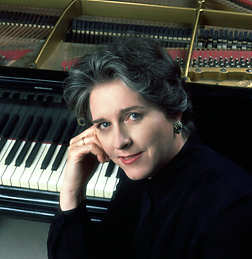 May I preface this short missive by stating that,
contrary to many, I thoroughly enjoy the wide variety of instruments encountered
on tour and that, while it is true a piano with notes that stick or that refuse
to sound can be off-putting, in general, I view the fact that I don't have to
carry around and use the same instrument wherever I appear, as a definite
challenge and a bonus. Frankly this is an attitude that provides for low-stress
and more enjoyment in an otherwise grueling profession; I still remember, almost
fondly, an open air concert I played in Mexico, where I managed to get through
the Rachmaninov piano concerto without the assistance of any pedal
whatsoever. May I preface this short missive by stating that,
contrary to many, I thoroughly enjoy the wide variety of instruments encountered
on tour and that, while it is true a piano with notes that stick or that refuse
to sound can be off-putting, in general, I view the fact that I don't have to
carry around and use the same instrument wherever I appear, as a definite
challenge and a bonus. Frankly this is an attitude that provides for low-stress
and more enjoyment in an otherwise grueling profession; I still remember, almost
fondly, an open air concert I played in Mexico, where I managed to get through
the Rachmaninov piano concerto without the assistance of any pedal
whatsoever.
However, my sympathies naturally gravitate towards
a certain kind of ideal instrument; an instrument that suits my particular
repertoire and the importance I place on a wide variety of colours, dynamics
and, of ultimate necessity, an instrument that is able to "sing." I am less
interested in harsh, percussive sounds, metallic sounds or dry sounds, which are
of course an integral part of certain kinds of repertoire, or even outlooks on
repertoire. Also, a piano is only as good as its technician and the Hall where
it stands: a beautiful instrument can very well be destroyed by bad mechanics,
and one of my favourite Hamburg Steinways (located in a renovated German
monastery) suddenly lost all of its charms when the old wooden plank floor was
replaced by a new wooden parquet floor that completely changed the acoustics and
turned the piano sound shrill and less than appetizing. Similarly, in London's
Wigmore Hall, there was a piano in the late 1990s that was an absolute dream on
which to perform. A few years later, and with a change of technician, the
instrument was ruined... at least, temporarily.
My favourite instrument? No question about that.
This would be the Hamburg Steinway in the George Weston hall in North York
Ontario. I have played and recorded on this instrument many times and it never
fails to delight. Chopin works particularly well on this piano, whose keys give
plenty of resistance, and whose dynamic range is exquisite. For my kind of
repertoire with the emphasis squarely on lyricism, this is the perfect
piano.
[Translation:
Tim Brierley]
Version française... |
|


